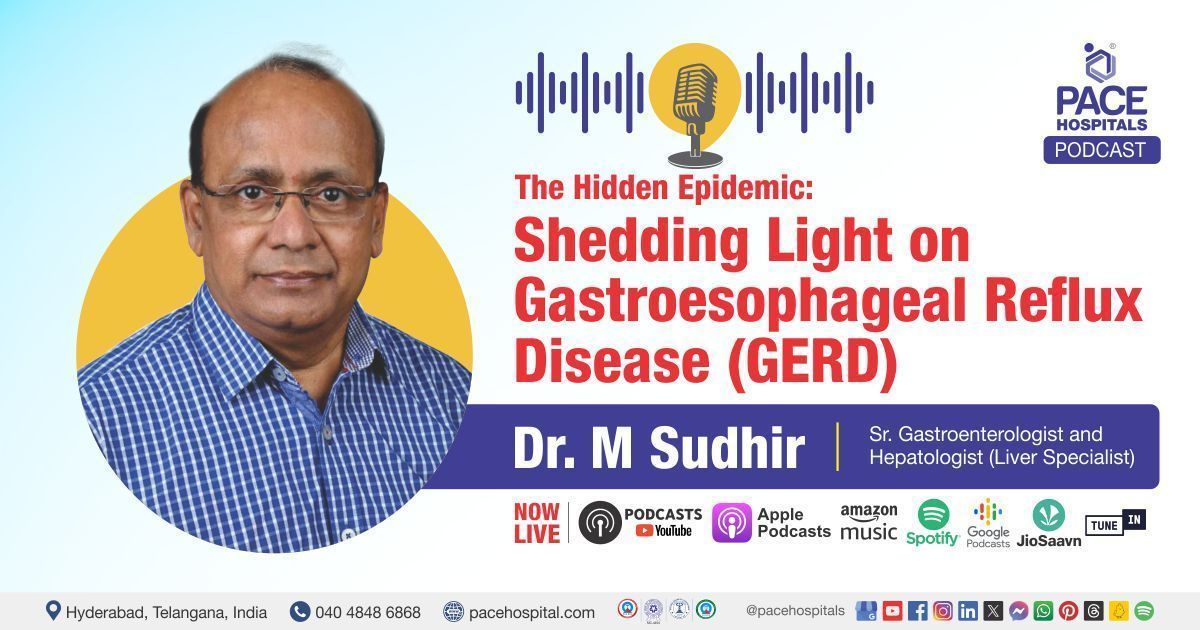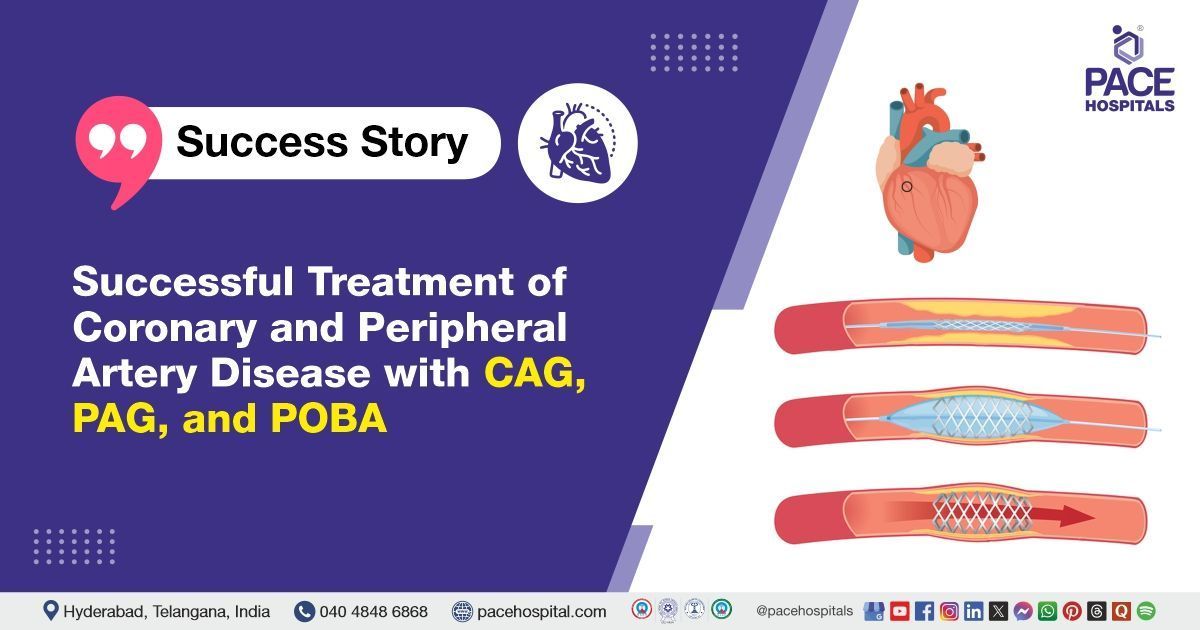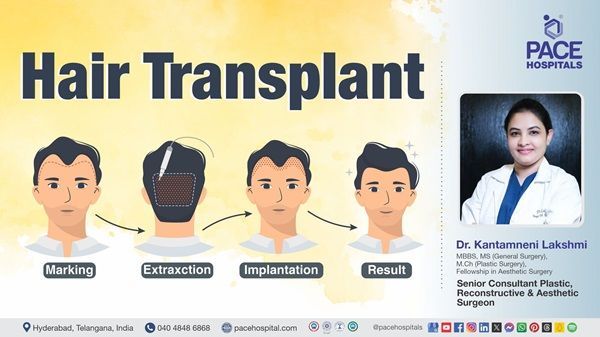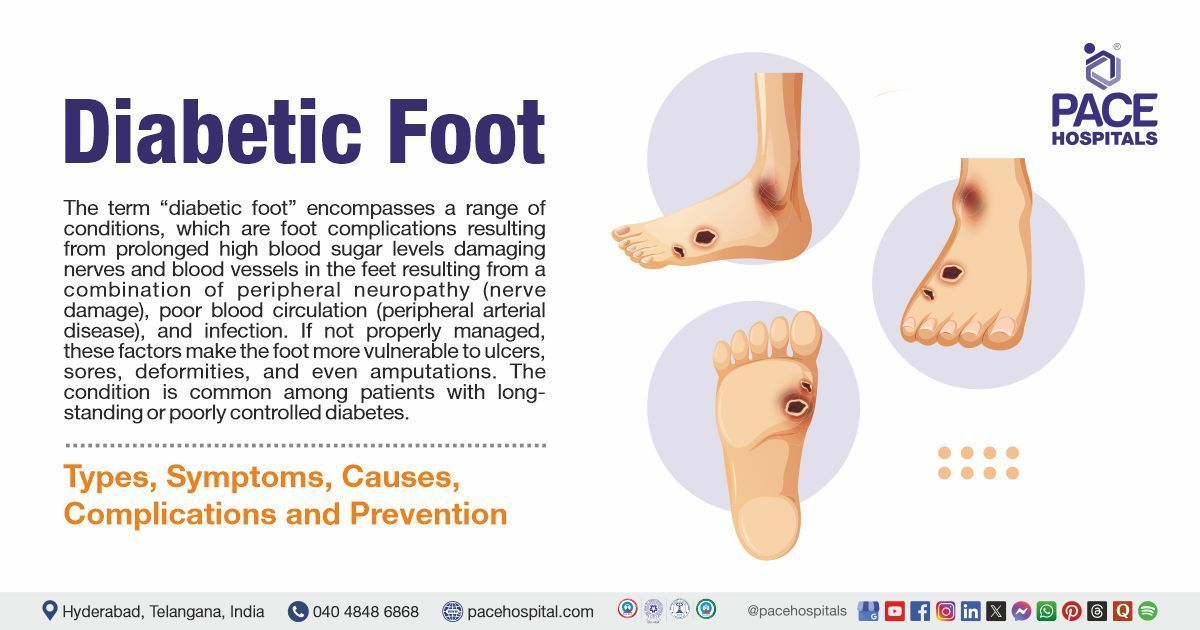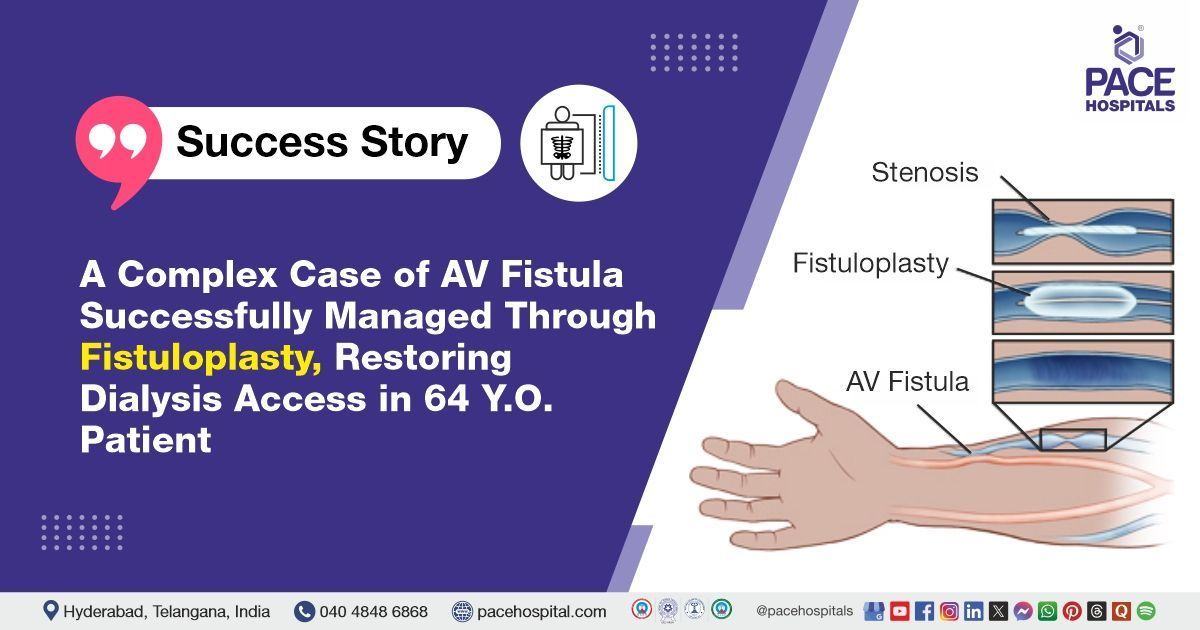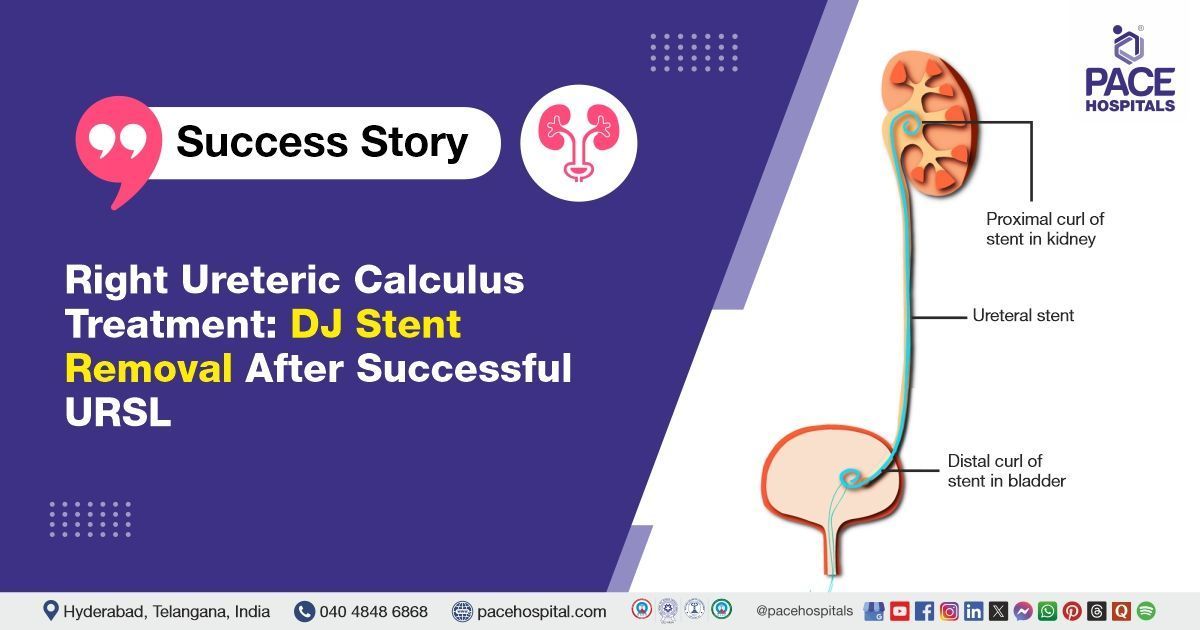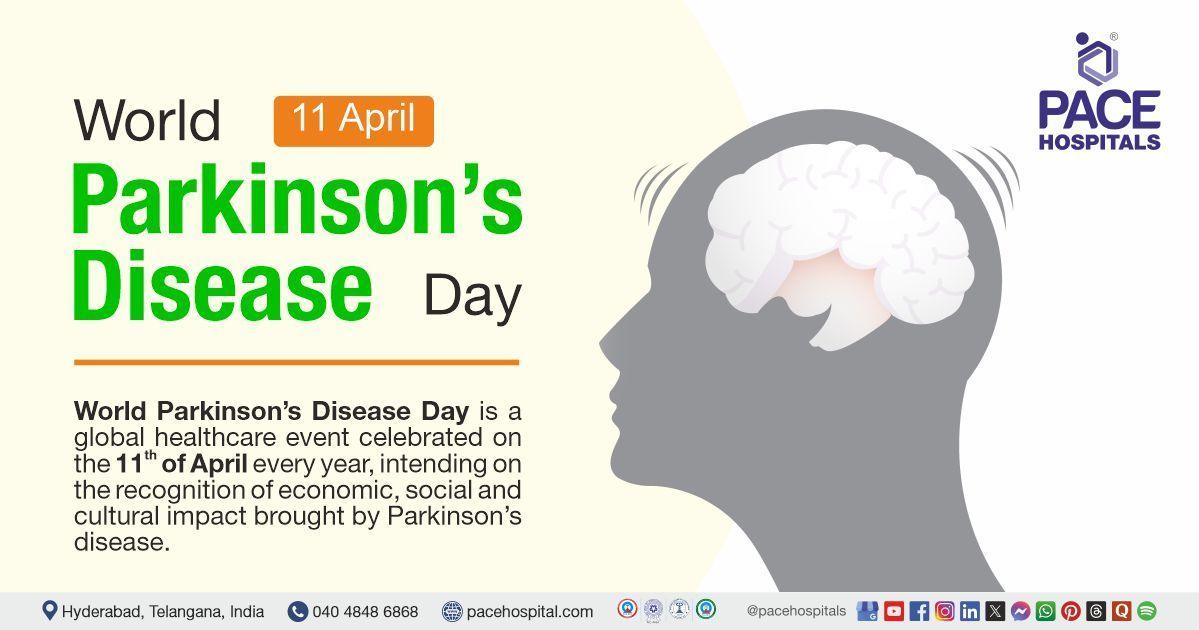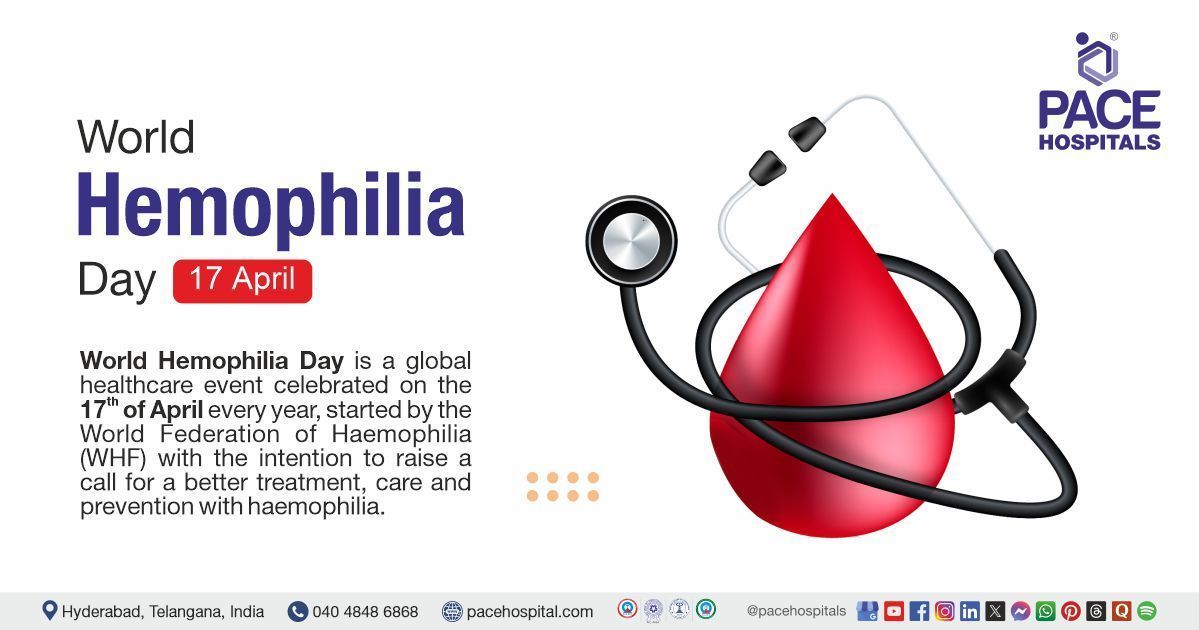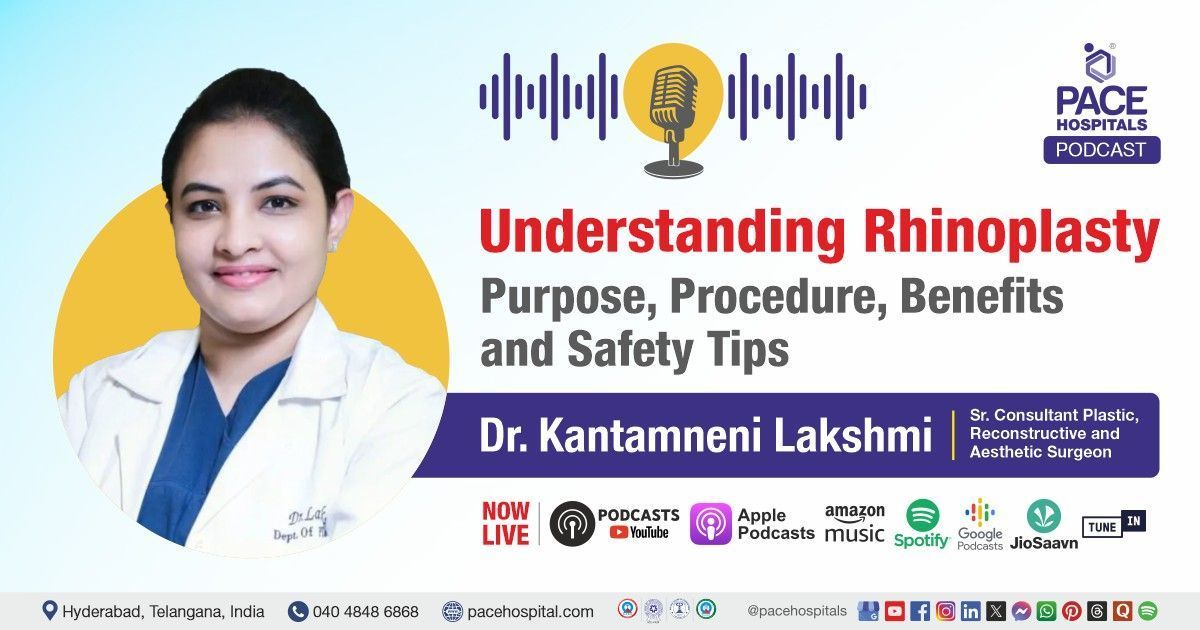The Hidden Epidemic: Shedding Light on Gastroesophageal reflux disease (GERD)
Listen to
Gastroesophageal reflux disease (GERD) is a chronic condition in which stomach acid flows back into the esophagus, causing irritation and inflammation. This can lead to symptoms like heartburn, regurgitation, chest pain, and difficulty swallowing. Today, in this episode of the GERD podcast, we’re spotlighting a condition that affects millions worldwide yet often lurks in the shadows of discomfort.
Join the PACE Hospitals Podcast with Dr M. Sudhir - Senior Consultant Gastroenterologist and Hepatologist at PACE Hospitals, Hitech City, Hyderabad, India, to unravel the mysteries of GERD and gain practical insights into managing and overcoming this often overlooked condition.
Transcript
Host: Hello and Welcome to PACE Hospitals Podcast, Today, we're diving deep into a topic that affects millions worldwide, yet often remains misunderstood and under discussed: gastroesophageal reflux disease, or GERD.
Joining us today Dr M. Sudhir - Senior Consultant Gastroenterologist and Hepatologist having wide expertise in treating and managing gastroesophageal reflux disease, or GERD. In today's episode he would like to unravel the mysteries of GERD and uncover practical insights to manage and overcome this often-overlooked condition.
Dr M. Sudhir thank you for joining us at PACE Hospitals, Hitech City
Doctor: Thank you for inviting me today; I would like to unravel the mysteries surrounding GERD and empower us with knowledge to better manage this silent agony within.
Host: Dr Mysore Sudhir thank you for joining us can you tell me what exactly GERD means?
Doctor: This is quite a common condition which has been seen for the last so many decades and in my 35 years or 37 years of practices actually, the trend has kept on increasing compared to what it was some one or two decades back.
This is mainly because of our dietary habits. It has been found out that this is quite disturbing for the patients as well as for the treating doctor. Sometimes, sometimes they're very refractory also, so let us see how many, how we can manage such condition.
Commonly we see very, so many patients having this GERD symptoms. They passed off as normal variant. They have small belching, they have some regurgitation, they consider it as normal. But if the frequency and the severity increase, then it's really troublesome.
The troublesome features are, you know, the patient has severe burning, they'll have water brash, they'll have regurgitation as well as severe crampy pain in the sternal region, this is really very troublesome for the patient because they go here and there and ultimately land up with some problems.
Host: What are the most common symptoms of GERD and how they typically manifest in individuals?
Doctor: Let us talk about first the common symptoms, what the patients can have. Generally, the patients, as I told you, they consider it as a normal mechanism, but ultimately, they'll have severe burning pain, especially when the patient is lying down patient have the sometimes dysphagia also burning sensation in the stomach, burning.
The burning sensation can extend up to the throat also and then such a condition, they'll have severe throat pain and sometimes cough also and ultimately some people have dysphagia, difficulty in swelling.
This is an alarming sign when the patient is having dysphagia that is difficult in swelling, we have to look very carefully and the patient should not ignore the symptoms and then patients will have severe, sometimes hiccups and then belching, these are the features, other features of this geRd.
Apart from this, there are some extra esophageal symptoms that is, the problem is in the esophagus, but the patient comes with the respiratory symptoms or sometimes upper sinus related symptoms, sometimes ear symptoms, sometimes pain in the teeth.
Also, this is because unknowingly, the patient will have reflux into the throat they're called micro reflux and then this can lead to problem in the larynx. They'll have the speech problems, they'll have soarseness, they'll have a recurrent cough also and sometimes the patient can also have pain in the ear and recurrent middle initial infections, eustachian catarrh and recurrent sinusitis.
Regarding the teeth, they can have decay of the teeth and the sometimes-dental surgeon also refers to the gastroenterologist because this unexplained decay of the teeth and then what you call the dentin gets enamel, gets damaged this because acid in this throat. So, this, this is the way a patient can present with the esophageal symptoms and extra esophageal symptoms.
Host: So, doctor, can you describe some of the less commonly known warning signs of GERD that individuals might overlook?
Doctor: Now, what are the warning signs for which the patient has to consult the doctor or what the doctor has to think more closely? In this patient, the warning signs are if the patient is having what you call this loss of appetite, loss of weight, and in the presence of this burning sensation, the throat and the sternal area and the epic acid with the patient has this burning, sorry loss of appetite and loss of weight, then we'll have to think very carefully, because such is a condition where, you know, we'll have to think of malignancies also, and especially if the patient is having some GI bleeding because of constant problem, they can have retching and sometimes blood streaks in the sputum, and sometimes there can be a tear in the esophagus.
So, this, such a condition also requires closed monitoring and other warning signs where we'll have to think is a longstanding GERD can have malignancy as a complication. The patient may not have any symptom at all or regarding malignancy, but a periodical surveillance has to be done and then there's a condition known as Barrett's esophagus, which is a premalinate condition, and sometimes the other complications are dysphagia because of constant reflux into the esophagus, the patient can have a stricture, peptic stricture we call in the lower esophageal area. This leads to a severe dysphagia, and then difficulty in swelling, such as a condition.
These are all we call as a warning symptoms or alarm symptoms or red flag symptoms such a case, you know, we'll have to look more carefully, because apart from medicine, we'll have to consider surgical surgery also in the management.
Host: What are the primary causes behind the development of GERD and how do they contribute to the condition?
Doctor: Now, as I told you earlier, the incidence is increasing in the population this is because our lifestyle has changed. So let us first discuss about the causes and why.
Host: What are the risk factors for this GERD?
Doctor: Primarily, diet is our main thing, which is very important these days. We are taking a highly saturated or fatty acid diet, and this leads to a weakness of the lower esophageal sphincter.
See, normally what happens, there's a angle at which the esophagus joins the stomach this angle is a protective phenomena. The way it enters the stomach, it has a at angle. So, it's a protective phenomena. So, there is a reflux will not occur generally, normally. But if this angle is not normal, or if the lower esophageal sphincter is weak, so this also causes reflux of the stomach continuing to the esophagus. So, what causes this reflux? So, one is the diet, which I told a high fatty diet, a high chocolate diet, a high non vegetarian diet, or a high spicy diet.
All these things can increase the reflux and because of the decrease in the esophageal sphincter, then apart from this, alcohol is another factor. Alcohol relaxes the lower esophageal sphincter. This causes reflux and other things is smoking.
Smoking is such a common addiction, people don't understand the importance, because long standing smoking can affect the can cause gerd and ultimately it esophageal cancer also. So these are the things which we'll have to keep in mind. So by doing this lifestyle modification maintenance, symptoms of this GERD can be reduced.
This GERD is also associated with obesity, because what happens when the patient is overweight, that generally they have this lax, low reciprocal sphincter because of the habit of the dietary habit, unless they'll be leading a lot of reflux symptoms and again, another factor, which is known as hiatus hernia, the prevalence of Hyatt academia is also increasing in the last one, and a half decade.
Hyatt academia is strongly associated with GERD symptoms, because Hyatt acne is a condition where the gastroesophageal junction position is shifted up into above the diaphragm. So the position of the sphincter is above the diaphragm. So, with this, what happens? This sphincter also is reduced, this pressure of the sphincter is also reduced spontaneously, so the incidence of GERD is more in this heterosynia. So, obesity, hydrogenia are interlinked to the GERD.
Host: How does endoscopy contribute to the diagnosis of Gerd?
Doctor: Endoscopy is a device by which, you know, we can go inside the esophagus and see the sphincter and the stomach also, and to find out what is the exact cause of this gird, whether the sphincter is tight or sphincter is lax, and how much reflex it is there, presence of hiatus, hernia. All these things can be made out in endoscope.
Now, do all the, all patients of gerds require endoscopy? This is one thing which is difficult to answer, but initially, a couple of weeks symptoms are there. Generally we don't do an endoscopy, but if the symptoms are persisting for more than few weeks, because there that problem occurs, there's some defect in the junction. So, such cases, it's better always to do an endoscopy and more.
So, what I, as I told you, there's a warning signs, especially elderly person, if the patient is not responding to the routine anti reflux measures, and if the patient is having weight loss or loss of appetite, or any hematomasis or gas or blood vomiting. These are the conditions where definitely we'll have to go for endoscopy, because all patients don't respond routinely with our routine management. So, we have to very carefully look and we should not miss a malignancy or any other condition when you're suspecting Gerda.
Host: What are the treatment options for GERD?
Doctor: Now coming to the treatment of such cases? Initially, before we start the medicines, as I told you earlier, lifestyle modification is important. The person has to reduce the weight, because obese people have more reflux.
So, by reducing the weight, reflux will be reduced and the diet control. Diet control. The quantum of the food should be reduced. The patients generally tend to have large stomach, full quantity of food.
This what happens, there's a relaxation of the lower residual sphincter and reflux occurs naturally because of this volume, the pressure of the food itself can cause the laxity of the sphincter. So, a patient should have small quantity meals and more frequent meals, the stomach should not be put at a tension by this.
Most of the symptoms can come down and then avoiding the precipitating or risk food items. What are these? As I told you, we should avoid a, especially the fatty diet, the chocolates, alcohol, avoiding tobacco and spicy ingredients like citric acids and then this, ginger, garlic especially. I prefer not to give and then less of this.
Tomatoes and other common things. Aerated drinks, this is one of the main cause. The aerated drinks are being consumed a lot by the present generation and it is more so in the western countries, this is if they don't drink water, they just drink aerated drink in between their snacks. So this causes more reflux, so this is one of the things which should be avoided.
Host: What are the most common medications prescribed for treating GERD and how do they work to elevate symptoms?
Doctor: Now regarding the medicines, what medicines should be taken by the patient? Generally they keep popping up this antacid pills, but always okay for a time being, for an emergency it's okay, but if the patient is currently having this problem, he has to consult a doctor, because doctor will decide what type of medicine to be given and what are the other drugs which are causing this and what is his lifestyle.
So, all this must be addressed by the doctor, so always better to consult the doctor. We have so many medications which are available in the market for controlling the reflux, the symptoms, apart from the antacids, we have h two blockers, we have proton pump inhibitors.
There are so many, each one has their own benefit and then other aspect is a pro kinetics. We must give a pro kinetic generally in this to avoid reflux. Prokinetic is a medicine where, you know, it increases the stomach motility.
By increasing the stomach motility, the duration of food in the stomach is reduced. So once the duration of the food in the stomach is reduced, there's no pressure on the lower esophageal sphincter. So, this adds to the treatment and benefits the patient.
So, prokaryote is good and then acid suppressed agents like the h two blockers and the proton pump impact inhibitors. So, these are the very important aromantarium in our system we'll have for the treatment of GERD.
Host: What are the typical indications for surgical intervention in GERD cases?
Doctor: Now when do we subject the patient for surgery? What are the indications for surgical intervention or endoscopic? and we have endoscopic interventions also apart from the surgery, the mechanism is same because the lower reservoir sphincter is lax and is not responding or is not getting tightened, not responding to the anti-reflux medications and not reflect into the dietary habits or to the food alteration.
Then the patient is requiring a high dose of PPI such are the cases where, you know, we'll have to intervene by endoscopically or biosurgically. Now, endoscopically, the different technique. There's a technique of tightening the low resurface winter by this radio frequency ablation.
We pass endoscope with a radiofrequency probe and then that burns the surrounding tissue and makes the fibrosis. Other one is a laparoscopic, sorry, endoscopic tightening of the borous sphincter. Right, that is the anti-reflux procedure. Same thing. Anti reflex procedure can be done by the surgeons by the laparoscopic fundoplication. These are the surgical method.
These are meant mainly for refractory cases not responding to the routine medications or high dose of ppIs. So ultimately, whatever thing we do, whether it's lifestyle, dietary alteration or the medical management or the surgical management is always the main aim is to prevent the reflux. By this you know the patients can live comfortably.
Host: Thank you, Dr M. Sudhir, for sharing crucial information regarding the GERD to our listeners
Doctor: I hope this information can be valuable for the listeners and don’t let GERD go undiagnosed or untreated, as it can have serious consequences. Take control of your well-being by listening to your body, making necessary lifestyle changes, and seeking medical guidance when needed. Your journey towards relief and comfort starts with awareness and proactive steps.
Host: If any of you have any further questions regarding GERD please don’t hesitate to consult a gastroenterologist, by staying informed, seeking assistance when needed, and prioritizing your health, you can take control of your GERD and live life to the fullest. Remember, your well-being matters.
We will see you soon on PACE Hospitals Podcast with another episode until next time stay informed, stay proactive, and take care of your health. Thank you
Request an appointment
Fill in the appointment form or call us instantly to book a confirmed appointment with our super specialist at 04048486868
Appointment request - health articles
Thank you for contacting us. We will get back to you as soon as possible. Kindly save these contact details in your contacts to receive calls and messages:-
Appointment Desk: 04048486868
Whatsapp: 8977889778
Regards,
Pace Hospitals
Hitech City and Madinaguda
Hyderabad, Telangana, India.
Oops, there was an error sending your message. Please try again later. We will get back to you as soon as possible. Kindly save these contact details in your contacts to receive calls and messages:-
Appointment Desk: 04048486868
Whatsapp: 8977889778
Regards,
Pace Hospitals
Hitech City and Madinaguda
Hyderabad, Telangana, India.
Our Locations – Find the Best Hospital Near You
Metro Pillar Number C1772, Beside Avasa Hotel, Hitech City Road, Near HITEC City Metro Station, Hyderabad, Telangana, India.
Mythri Nagar, Beside South India Shopping Mall, Hafeezpet, Madeenaguda, Hyderabad, Telangana, India.
040 4848 6868
Payment in advance for treatment at PACE Hospitals, Hyderabad, Telangana, India (Pay in INR ₹)
For Bank Transfer:-
- Bank Name: HDFC
Company Name: Pace Hospitals
A/c No.50200028705218
IFSC Code: HDFC0000545 - Bank Name: STATE BANK OF INDIA
Company Name: Pace Hospitals
A/c No.62206858997
IFSC Code: SBIN0020299
Scan QR Code by Any Payment App (GPay, Paytm, Phonepe, BHIM, Bank Apps, Amazon, Airtel, Truecaller, Idea, Whatsapp etc).

CONTACT US
Call: +914048486868
WhatsApp: +918977889778
Email: info@pacehospitals.in
FOLLOW US
SUBSCRIBE
Subscribe to our newsletter and stay updated with the latest health information.
Subscribe to PACE Hospitals' Public Newsletter
Thank you for subscribing to PACE Hospitals' Newsletter. Stay updated with the latest health information.
Oops, there was an error. Please try again submitting your details.
ABOUT US
QUICK LINKS
Disclaimer
General information on healthcare issues is made available by PACE Hospitals through this website (www.pacehospital.com), as well as its other websites and branded social media pages. The text, videos, illustrations, photographs, quoted information, and other materials found on these websites (here by collectively referred to as "Content") are offered for informational purposes only and is neither exhaustive nor complete. Prior to forming a decision in regard to your health, consult your doctor or any another healthcare professional. PACE Hospitals does not have an obligation to update or modify the "Content" or to explain or resolve any inconsistencies therein.
The "Content" from the website of PACE Hospitals or from its branded social media pages might include any adult explicit "Content" which is deemed exclusively medical or health-related and not otherwise. Publishing material or making references to specific sources, such as to any particular therapies, goods, drugs, practises, doctors, nurses, other healthcare professionals, diagnoses or procedures is done purely for informational purposes and does not reflect any endorsement by PACE Hospitals – your trusted hospital near me.

